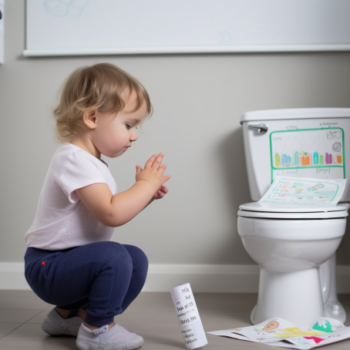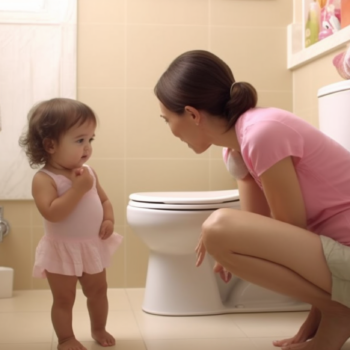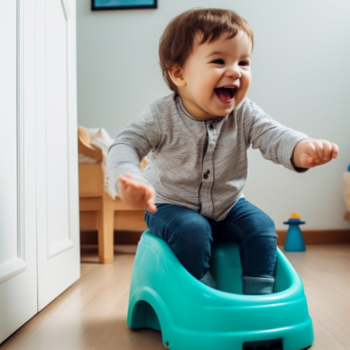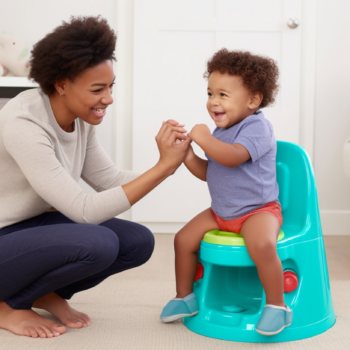Potty training is an essential milestone for every toddler, and there are several methods to accomplish this task. The most common approaches include the traditional method, the child-led method, and the 3-day method. The traditional method involves parents setting a schedule for their child to use the potty, while the child-led method relies on the child's readiness to use the potty. The 3-day method involves intensive training over a few days to help the child understand the process quickly. Each approach has its pros and cons, and it's essential to choose the one that suits your child's personality and lifestyle. By understanding the different potty training methods, parents can choose the most effective way to help their child achieve success in using the potty.
Tag: toilet training
Signs Your Son is Ready for Potty Training: A Comprehensive Guide
As a parent, it can be daunting to know when your son is ready to start potty training. Look out for signs such as showing interest in the toilet, being able to communicate when they need to go, staying dry for longer periods of time, and being able to pull their own pants up and down. Once you see these signs, it’s time to start the potty training process. Remember to be patient and consistent, and celebrate every small success along the way. With the right approach, potty training can be a positive and rewarding experience for both you and your son.
Effective Nighttime Potty Training Tips: A Comprehensive Guide for Parents
Nighttime potty training can be a challenging task for both parents and children. It requires patience, consistency, and a lot of preparation. To start, make sure your child is ready and show them how to use the potty properly. Limit liquid intake before bedtime and make sure your child uses the bathroom before sleeping. Invest in waterproof sheets and consider using absorbent training pants or bedwetting alarms to help your child wake up when they need to use the bathroom. Remember to praise and encourage your child for their progress and be patient as nighttime potty training can take some time. By following these tips and maintaining a positive attitude, you'll be on your way to successful nighttime potty training for your child.
Potty Training Timeline: How Long Does It Take to Successfully Train a Child?
Potty training is a significant milestone for both parents and children. However, the duration of the process varies for different children. Some may take a few days, while others may need several months or even longer. Factors such as age, temperament, and readiness play a crucial role in determining how long it takes to potty train a child. Nevertheless, it is important to be patient and consistent in the process, as pushing a child too hard or rushing them can lead to regression. With the right approach, encouragement, and rewards, most children can successfully transition from diapers to using the toilet in due time.
A Comprehensive Guide to Determine Your Child’s Potty Training Readiness
Potty training is an important milestone in a child's development, but it can be challenging for both the child and parent. It's important to know if your child is ready before starting the process. Some signs that your child may be ready include showing interest in the potty, being able to stay dry for a few hours, and being able to communicate their needs effectively. It's important to be patient and positive during the process, as every child is different and may take longer to master this skill. By following your child's cues and providing plenty of encouragement and support, you can help them successfully navigate this important stage in their development.
When to Begin Potty Training: A Parent’s Guide to Knowing the Perfect Age
Potty training can be a daunting task for parents, but it's an important milestone for your child's development. The question of what age to start potty training is common among parents, and the answer may vary based on your child's readiness. However, experts suggest that children can start potty training as early as 18 months old. It's important to look for signs of readiness, such as showing an interest in using the toilet and pulling down their own pants. Starting the process early can also prevent regression and make the transition smoother. Remember, every child is different, and there's no one-size-fits-all approach to potty training. Just be patient, consistent, and positive throughout the journey.
A Beginner’s Guide to Potty Training Your Child: Tips and Tricks to Get Started
Potty training can be a daunting task for many parents, but the key is to start at the right time and with the right approach. The first step is to make sure your child is ready and showing signs of readiness, such as staying dry for longer periods and showing interest in the toilet. Once you've established readiness, it's important to create a positive and consistent routine, with plenty of praise and rewards for your child's successes. Additionally, providing your child with the right tools, such as a child-sized potty and special underwear, can also make a big difference. Remember to be patient and persistent, and celebrate each step forward in the potty training process. With the right approach and a lot of encouragement, your child will soon be on their way to becoming toilet trained.




